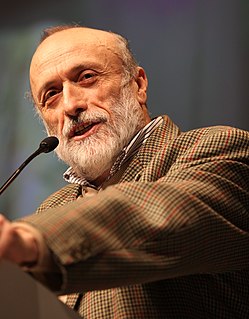A Quote by Jay Inslee
Air is one we hold in common; it has a limited carrying capacity for pollutants and that's being used up by those who pollute the atmosphere. So we have to stop that externality. We would never allow a utility to put their coal slag in a dump truck and back it up to the city park and dump it in unlimited amounts for free. But that is exactly what we do with carbon dioxide and methane.
Related Quotes
Ordinary Americans can't pollute for free. You can't dump your trash on the sidewalk or throw all your refuse into your neighbor's yard. I don't understand why corporate polluters should be allowed to dump megatons of carbon, the most dangerous pollution in the history of the world, into our thin shell of an atmosphere, and not pay a penny to do it.
Here's the problem - carbon dioxide doesn't contribute to smog and isn't a health threat. All of this is being done because some people believe carbon dioxide is causing global warming, and that preventing carbon dioxide from entering the air is the only answer. Never mind that there is still an ongoing scientific debate about global warming itself, and that some respected climate scientists believe that methane is a better target, California legislators have locked their sites on carbon dioxide.
The fundamental reason why carbon dioxide in the atmosphere is critically important to biology is that there is so little of it. A field of corn growing in full sunlight in the middle of the day uses up all the carbon dioxide within a meter of the ground in about five minutes. If the air were not constantly stirred by convection currents and winds, the corn would stop growing.
Today, about 40 percent of America's carbon pollution comes from our power plants. There are no federal limits to the amount those plants can pump into the air. None. We limit the amount of toxic chemicals like mercury, and sulfur, and arsenic in our air and water, but power plants can dump as much carbon pollution into our atmosphere as they want. It's not smart, it's not right, it's not safe, and I determined it needs to stop.
This generation has altered the composition of the atmosphere on a global scale through radioactive materials and a steady increase in carbon dioxide from the burning of fossil fuels. Entire regional airsheds, crop plant environments, and river basins are heavy with noxious materials. Motor vehicles and home heating plants, municipal dumps and factories continually hurl pollutants into the air we breathe. Each day almost 50,000 tons of unpleasant, and sometimes poisonous, sulfur dioxide are added to the atmosphere, and our automobiles produce almost 300,000 tons of other pollutants.
Soils could also be giving up their carbon stores: evidence emerged in 2005 that a vast expanse of western Siberia was undergoing an unprecedented thaw. The region, the largest frozen peat bog in the world, had begun to melt for the first time since it formed 11,000 years ago. Scientists believe the bog could begin to release billions of tonnes of methane locked up in the soils, a greenhouse gas 20 times more potent than carbon dioxide. The World Meteorological Organisation recently reported the largest annual rise of methane levels in the atmosphere for a decade.
Global warming results not from the emission of greenhouse gases into the atmosphere, but from an unusually high level of solar radiation and a lengthy - almost throughout the last century - growth in its intensity. It is no secret that when they go up, temperatures in the world's oceans trigger the emission of large amounts of carbon dioxide into the atmosphere. So the common view that man's industrial activity is a deciding factor in global warming has emerged from a misinterpretation of cause and effect relations.
If food was no longer obliged to make intercontinental journeys, but stayed part of a system in which it can be consumed over short distances, we would save a lot of energy and carbon dioxide emissions. And just think of what we would save in ecological terms without long-distance transportation, refrigeration, and packaging--which ends up on the garbage dump anyway--and storage, which steals time, space, and vast portions of nature and beauty.


































